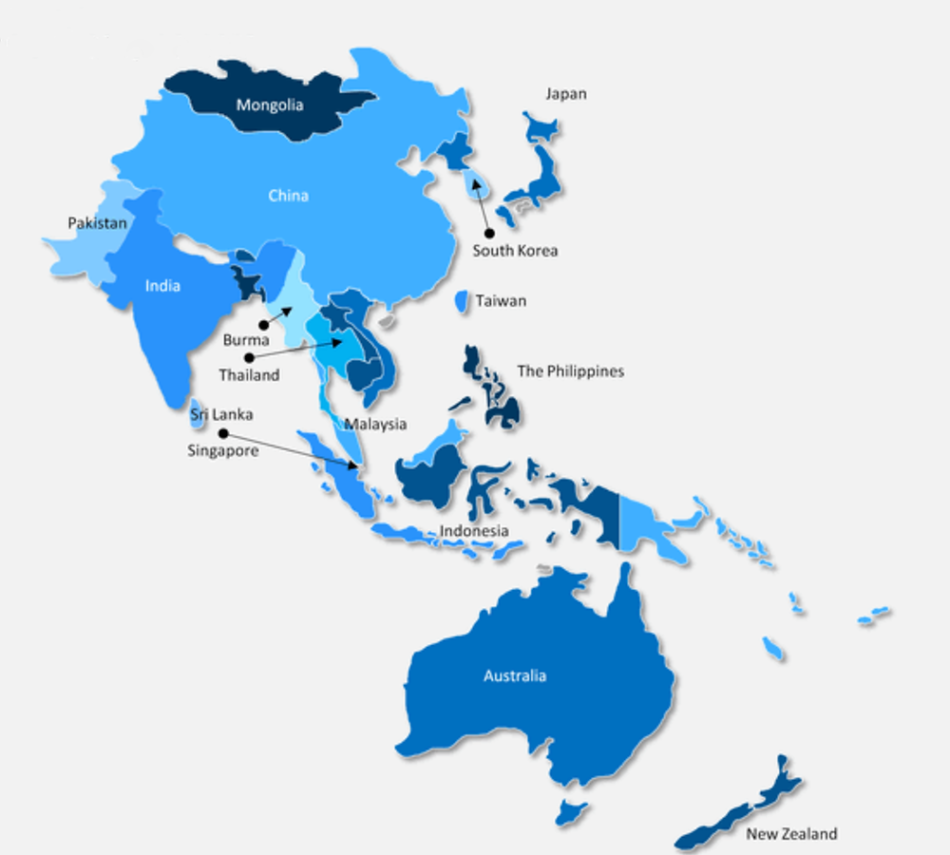On April 24- a day before Prime Minister Sheikh Hasina’s visit to Japan, the Foreign Ministry of Bangladesh announced the country’s Indo-Pacific Outlook (IPO) formally. The outlook is a much-awaited one considering its significance in current Indo-Pacific geopolitics and increasing pressure on ‘swinging’ states from all the great powers to join in their geopolitical adventure.
However, the outlook depicts Bangladesh’s self-determination, guiding principle, and its firm belief in the existing liberal international order. Against this backdrop, it is worth assessing the outlook.
Indo-Pacific outlook of Bangladesh
Bangladesh announced its IPO just a day before the Prime Minister’s Japan visit. The visit was very crucial for both the nations as several MoUs were signed. Moreover, PM Sheikh Hasina visited the United States and the United Kingdom afterwards. As a result, the announcement served a great deal of significance for the country’s foreign relations. It sent a message to all concerned countries regarding its stance on the Indo-Pacific.
The 15-point outlook views security as a prerequisite for economic prosperity. In the outlook, Dhaka clarified that it has no intention to pick sides in the ongoing geopolitical rivalry between China and the US and its allies.
However, Bangladesh believes in a free, open, peaceful, secure, and inclusive Indo- Pacific and considers the stability and prosperity in the region to achieve its “Vision-2041”- a goal to emerge as a developed nation by 2041.
In the outlook, Bangladesh also clarifies that it believes in international relations based on the principles of respect for national sovereignty and equality, political independence, non-interference in internal affairs, and peaceful settlement of international disputes. Bangladesh also reaffirmed its adherence to the relevant UN treaties and international conventions such as UNCLOS. The country also emphasized strengthening mutual trust and respect, forging partnerships, and cooperation, and promoting dialogue among the nations.
Moreover, it calls for strengthening existing mechanisms on maritime safety and security in the Indo-Pacific. Bangladesh’s IPO also prioritizes enhancing physical, institutional, energy, digital, and human connectivity, facilitating the movement of goods, services, capital, and people across state boundaries. Across the region, Bangladesh’s IPO also calls for fostering cooperation among the Indo-Pacific countries. The 15 points also include collaboration with sub-regional partners and relevant organizations for regional cooperation and mutual benefits.
Balancing the great power rivalries
The 15-point IPO suggests that Bangladesh reaffirms its belief in the liberal order in its IPO. Accommodating a free and open Indo-Pacific region and reaffirming its belief in the peaceful settlement of disputes is an example of such claims. Bangladesh’s belief in liberal values and norms facilitates the Western countries’ interest such as the US and its allies, which seek to maintain the status quo.
On the other hand, Bangladesh’s emphasizing connectivity and free movement of goods and services also facilitates the interests of emerging powers such as Japan, China, and India. Hence, the IPO will allow the country to equalize the odds among the great powers, especially in the current geopolitical rivalry.
Again, the IPO also emphasizes sub-regional and relevant organizations for mutual benefits. Such emphasis on these organizations will allow Bangladesh to remain neutral and ensure security at the same time. For the past few years, Bangladesh has been deepening its engagement with ASEAN, and attending mini laterals such as the Colombo Security Conclave. It is also the current Chair of the Indian Ocean Rim Organization. Such subregional and mini lateral organizations will help the country to ensure security in the region without picking any sides. And lastly, Bangladesh’s incorporation of multilateralism and Sustainable Development Goals also suggest that the country is likely to rely on global platforms and forums for its security.
Practicing self-determination and accommodating guiding principles
For a while now, Bangladesh has been facing immense pressure from both the US and China regarding its stance on their rivalry. Due to its neutral and balancing policy, it has been stuck between the power rivalry owing to its geostrategic significance. For instance, a former Chinese envoy warned the country not to join in Quadrilateral Security Dialogue, while the US expressed its desire to find Bangladesh in its IPS on several occasions. Besides, the regional political dimension and Sino-Indian rivalry also brought new challenges for it. Amid such a complex political space, Bangladesh’s neutral and balancing outlook is a fine example of its practice of self-determination.
Moreover, to assure the great powers of its intention, Bangladesh has incorporated both connectivity philosophies of emerging great powers and liberal values such as FOIP, stability, peace, and security of the Western hegemony. Yet, it also accommodated its long-practiced principles such as Friendship towards all and malice to none, balanced and neutral foreign policy, and belief in multilateralism.
An example for other littoral and small states?
In the present context, the littorals and the small states require peace and security for their nation’s prosperity. Amid such complex interdependence, they rely on almost all great powers and powerhouses for their wide range of commercial, economic, and security activities. Therefore, picking a side becomes a zero-sum game and poses a challenge to their interdependence.
Bangladesh’s IPO has the potential to ensure both in this context. It promotes a positive-sum game and stays away from any side-picking. Its reliance on multilateralism and neutral policy is also beneficial for cooperation. Hence, it is an exemplary outlook for littoral and small states such as Sri Lanka or the Maldives or any other small and littoral Indo-Pacific states.
*Doreen Chowdhury is a doctoral researcher at the University of Groningen, The Netherlands.
May 8, 2023
The viewpoints expressed by the authors do not necessarily reflect the opinions, viewpoints and editorial policies of Aequitas Review.


